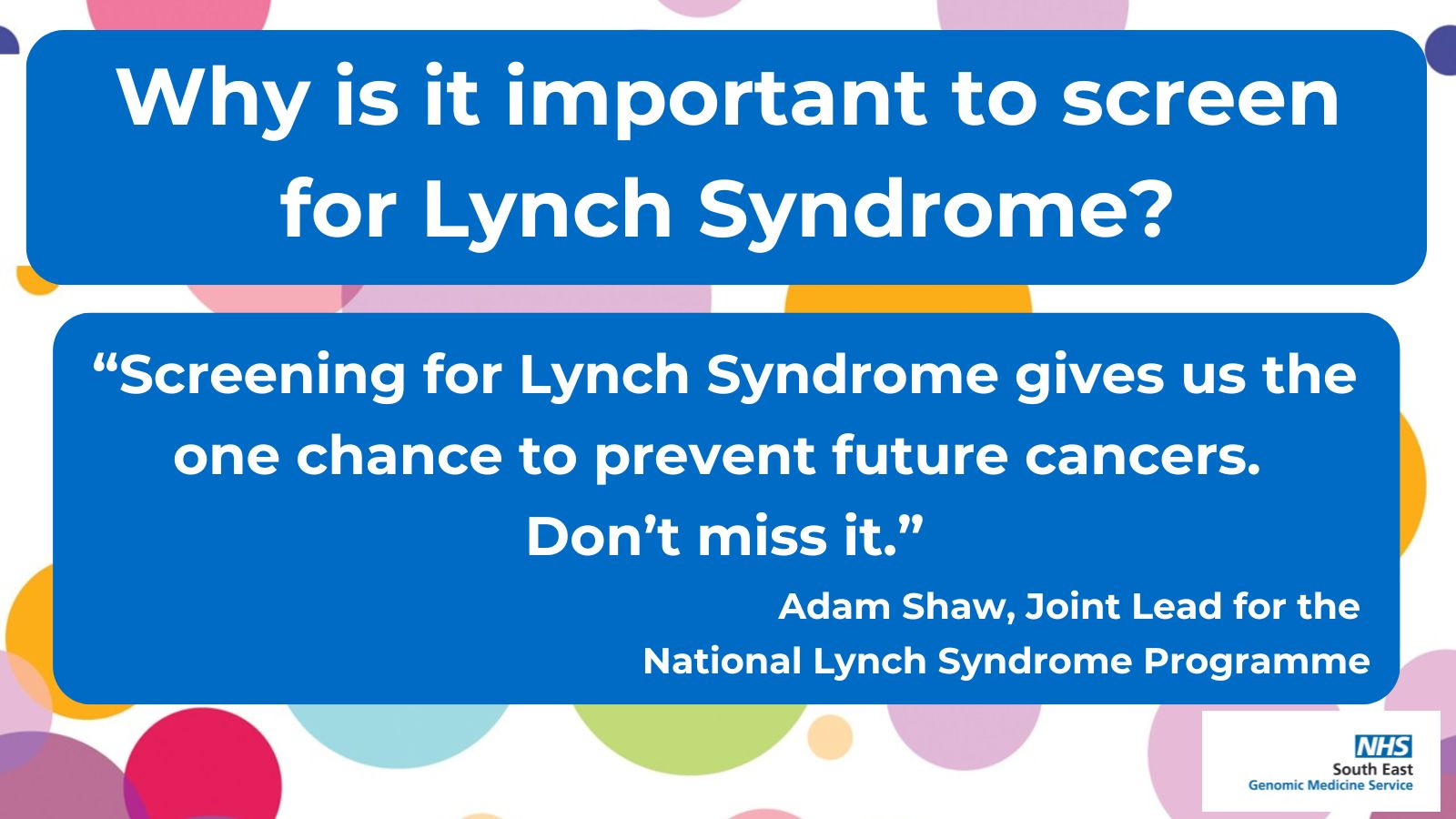
Adam Shaw is a Clinical Geneticist and heads up the Genetics team at Guys & St Thomas’ Hospitals.
“When I started in genetics 22 years ago, there weren’t many genetic tests we could do, but now we know it’s the future for cancer treatment and increasingly prevention.”
He is particularly passionate about Lynch Syndrome which is a genetic condition that can increase your risk of developing cancer to about 80% over your lifetime.
“Over the last 15 years it’s become apparent just how common Lynch Syndrome is, and why a national screening programme is such an important tool to prevent cancers.”
Lynch is one of the most common genetic conditions with one in 350 people having the genetic change that causes it. “That’s about 25 for every GP practice, but 95% of people don’t know they have it.”
“We thought the breakthrough came in 2017, when new NICE guidelines recommended all bowel cancer patients should be screened for Lynch Syndrome.”
But in 2019 this was still only happening for 40% of patients. Adam is now part of a national team who are working to turn the Lynch dream into reality. Together they are supporting individual NHS Trusts to establish their own Lynch screening.
Adam is very clear about the benefits of a national Lynch screening.
1. Screening gives us the one chance to prevent future cancers. Don’t miss this chance to put prevention in place.
2. Look at the whole patient – not just the tumour in front of you. Whilst it is of course important to treat people for the cancer they have right now, it is equally important for the patient, and their families, to prevent future cancers.
3. Don’t be scared of genetics. Everyone can do genetics. We can help you to learn and set up your own testing. It’s much quicker for you and your patients.
The team have successfully supported many NHS Trusts to establish their own screening for Lynch Syndrome. These new pathways are offering clear benefits for both patients as well as the medical teams. Clinical Geneticists, such as Adam, remain on hand to support patients once they have a Lynch diagnosis as well as organising testing for their families. There is also a dedicated Lynch nurse in every region offering training, education and support.
“A Lynch diagnosis can open up new treatment options for your patients such as immunotherapy. By delivering Lynch screening in your own Trust you will reduce the waiting time, be able to treat your patient more effectively and prevent future cancers. The dream can be a reality.”
Visit our Lynch page for more information.
